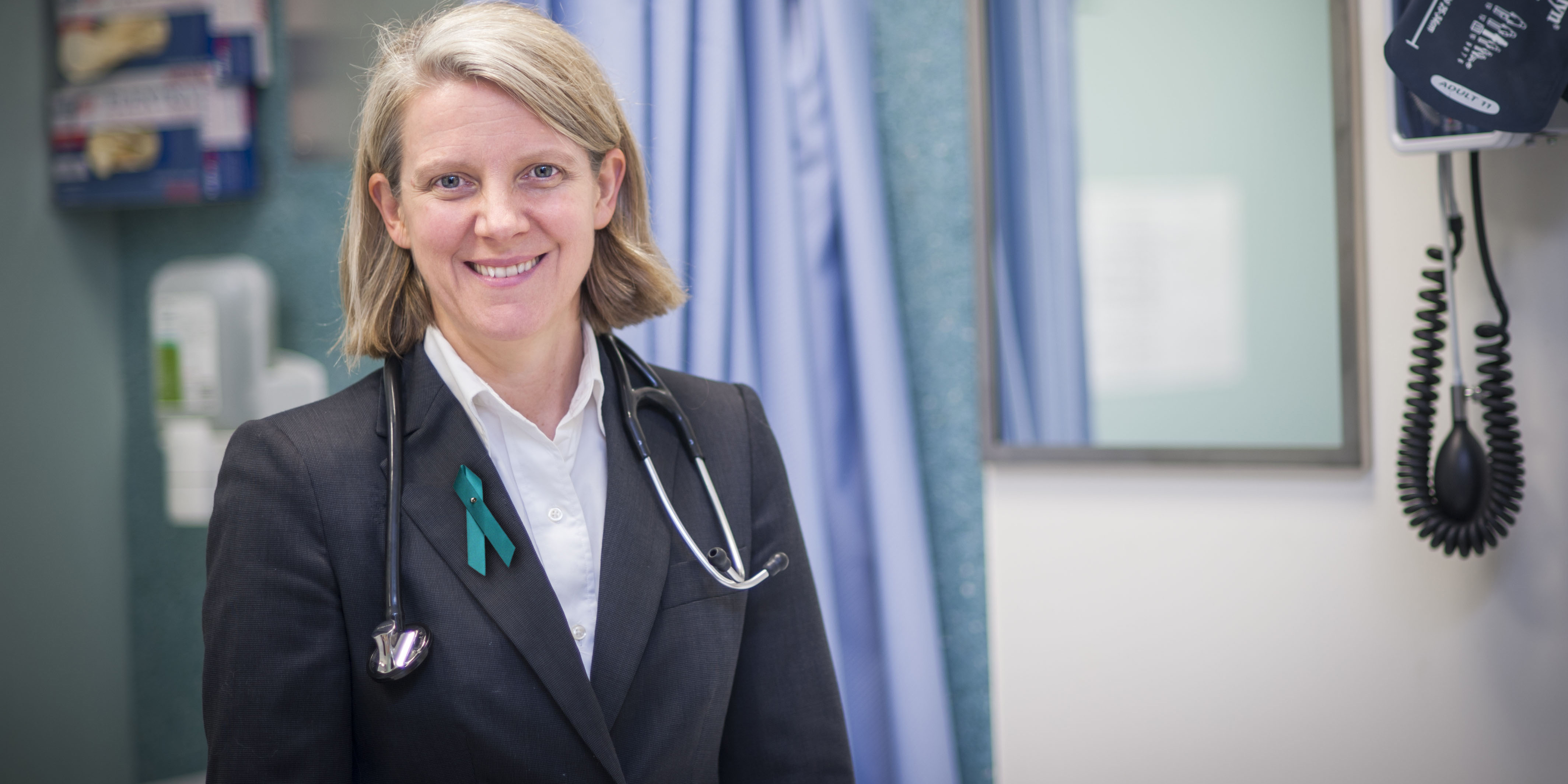
Leading ovarian cancer researcher Professor Clare Scott has shared her insights, optimisms and challenges to mark Australia’s national Ovarian Cancer Awareness Month.
Prof Scott, who recently joined the Royal Women’s Hospital Cancer Research Centre, said 2019 is a very different landscape for women with or at risk of ovarian cancer compared to even a few years ago.
“A really exciting thing that’s changed in the clinic over the past 12 months is that women with ovarian cancer, depending on whether they have a family history, are being offered a panel gene test – not just BRCA1 or 2, but up to about 15 genes,” she said.
“I’ve worked in cancer clinics for more than 15 years and we used to struggle to even get BRCA1 and 2 tested but now we’re really efficient with these panel tests in the lab and we are discovering things a lot faster than we used to be able to.
“This efficiency means we are picking up more information for our women and for their families. Ultimately it will protect more women in those families and that is so exciting because it means we are going to be able to prevent ovarian cancers from occurring in the future.”
However, Prof Scott, who also conducts her research at the Walter and Eliza Hall Institute and University of Melbourne, said the challenge for researchers and clinicians alike was that ovarian cancer continued to be one of the most difficult to diagnose and treat.
More than 1600 women in Australia are diagnosed each year and on average, the deadly disease claims the lives of three women every day.
Prof Scott stressed the importance of funding – both philanthropic and governmental – as integral to research breakthroughs in the fight for better treatment and, possibly one day, a cure for the disease.
“Ovarian cancer is a very complex cancer, with so many rare forms of the disease that we currently know very little about,” she said.
“We have a lot of work going on in labs across Australia but it is a really hard slog and there’s a lot to be done. This is why we need philanthropic support and more drive from those in power to get trials up and running, so we can identify and test a range of drugs that might make a difference to women.”
February also marks the beginning of a new trial Prof Scott will lead – the SOLACE2 trial – which will investigate the effectiveness of a low-dose chemotherapy drug, oral cyclophosphamide, which alters the immune system, in conjunction with new exciting treatments, the PARP inhibitor and also an immune therapy, in ovarian cancer patients when their ovarian cancer begins to relapse for the first time, but before symptoms or signs have occurred.
Prof Scott said there was a renewed focus on treatment targeting the immune system through “old tricks”.
“In ovarian cancer, the new immune drugs haven’t been that impressive and certainly not as single treatment options,” Prof Scott said. “We have to go back and look at old tricks and how to do them better. Combining an immune therapy with a PARP inhibitor and with oral cyclophosphamide may just work.”
“This trial is a great opportunity for our patients because they will be offered this treatment at the first, earliest sign of relapse,” Prof Scott said.
The trial will recruit 114 patients across 15 Australian sites. Those eligible for the trial will have completed their first round of chemotherapy and then recorded a rise in the blood protein CA125, which can be produced by ovarian cancer cells, at least 6 months or more after their chemotherapy finished.
Prof Scott said the translational science of the study would be conducted by her team at the Women’s and the Walter and Eliza Hall Institute and by that of immunologist, Prof Magda Plebanski at RMIT, a long-time collaborator of the Women’s.